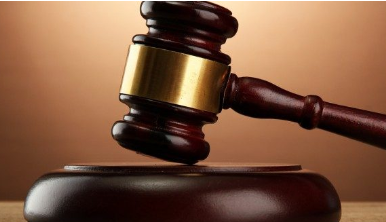Mike Lynch, the British tech tycoon, has been acquitted of fraud charges related to the $11 billion sale of his software firm, Autonomy, to Hewlett-Packard in 2011. A jury in San Francisco delivered a verdict of not guilty on all counts, marking a significant legal victory for Lynch.
He had been accused of artificially inflating Autonomy’s value prior to the acquisition.
Facing the prospect of more than two decades in prison if convicted, Lynch vehemently denied the allegations and chose to testify in his defense during the trial. He asserted that his focus had always been on the technological aspects of the business, distancing himself from any involvement in accounting matters.
This stance effectively separated him from other executives, including the company’s former chief financial officer, who had previously been convicted of fraud.
“I am elated with today’s verdict and grateful to the jury for their attention to the facts over the last 10 weeks,” Mr Lynch said in a statement.
“I am looking forward to returning to the UK and getting back to what I love most: my family and innovating in my field.”
University of Cambridge graduate Mr Lynch co-founded Autonomy in 1996 out of a specialist software research group called Cambridge Neurodynamics.
Mike Lynch played a pivotal role in building Autonomy into one of the UK’s largest companies, earning him comparisons to tech titans like Bill Gates and Steve Jobs.
The company specialized in software capable of extracting valuable insights from unstructured data sources like emails, phone calls, and videos. Its acquisition by Hewlett-Packard (HP) in 2011 marked the largest-ever takeover of a British technology firm at the time, with Lynch personally profiting £500 million from the sale. However, just a year later, HP wrote down Autonomy’s value by $8.8 billion, sparking years of legal battles.
In 2018, Autonomy’s former chief financial officer, Sushovan Hussain, was convicted of fraud and sentenced to five years in prison. US prosecutors subsequently charged Lynch with inflating Autonomy’s value through deceptive means, including backdated agreements and concealing loss-making business activities.
Lynch, who resides in Suffolk, faced extradition to the US after a UK judge ruled in favor of HP in a civil fraud case seeking $4 billion in damages.
During his trial in San Francisco, Lynch argued that HP had failed to conduct proper due diligence and mismanaged the acquisition. He maintained that he was not involved in the fraudulent activities described by prosecutors. Despite calling numerous witnesses, including HP’s former CEO Leo Apotheker, prosecutors failed to convince the jury.
One count of securities fraud was dismissed due to lack of evidence. Following the verdict, a spokesman for the US Attorney’s Office expressed respect for the jury’s decision.
In addition to Lynch, another former Autonomy finance executive, Stephen Chamberlain, was also acquitted of charges.
Lawyers for Mr Lynch, Christopher Morvillo and Brian Heberlig, said in a statement that they were thrilled by the outcome, saying it reflected a “rejection of the government’s profound overreach in this case”.
“This verdict closes the book on a relentless 13-year effort to pin HP’s well-documented ineptitude on Dr Lynch,” they said. “Thankfully, the truth has finally prevailed.”



